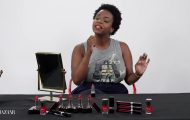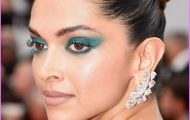Hair Health 101: Essentials for Gorgeous Locks
This article discusses the essential tips and practices for maintaining healthy and beautiful hair.
Proper Hair Care Routine
Proper Hair Care Routine
Having a consistent hair care routine is crucial for maintaining healthy and beautiful locks. It not only keeps your hair looking its best but also promotes overall hair health. By following a few simple steps, you can ensure that your hair remains strong, shiny, and free from damage.
First and foremost, regular washing is essential to remove dirt, oil, and product buildup from your hair and scalp. Use a gentle shampoo and conditioner that suits your hair type and follow the instructions on the bottle for best results.
In addition to washing, it’s important to nourish your hair with regular conditioning treatments. Deep conditioning once a week can help restore moisture and repair any damage caused by heat styling or environmental factors. Consider using a leave-in conditioner for added hydration.
Another crucial step in your hair care routine is brushing. Use a wide-toothed comb or a brush with soft bristles to detangle your hair gently. Start from the ends and work your way up to avoid breakage.
Lastly, protect your hair from heat damage by using heat protectant sprays or serums before styling with hot tools. Limit the use of heat styling tools and opt for air-drying whenever possible to minimize damage.
By following these simple steps and maintaining a consistent hair care routine, you can ensure that your locks stay healthy, vibrant, and gorgeous.
Healthy Diet for Hair
When it comes to maintaining healthy and beautiful hair, nutrition plays a crucial role. A healthy diet can have a significant impact on the overall health and appearance of your locks. By providing your hair with the right nutrients, you can ensure that it remains strong, lustrous, and vibrant.
So, what are the key nutrients that your hair needs to thrive? Let’s take a closer look:
- Protein: Protein is the building block of hair, and it plays a vital role in promoting hair growth and strength. Include protein-rich foods such as lean meats, fish, eggs, beans, and nuts in your diet to ensure your hair gets an adequate supply of this essential nutrient.
- Vitamins: Certain vitamins, such as vitamin A, vitamin C, and vitamin E, are known to promote hair health. These vitamins help in the production of sebum, which moisturizes the scalp and keeps the hair follicles healthy. Incorporate foods like carrots, citrus fruits, spinach, and almonds into your diet to boost your vitamin intake.
- Minerals: Minerals like iron, zinc, and selenium are essential for maintaining healthy hair. Iron helps in carrying oxygen to the hair follicles, while zinc and selenium contribute to hair growth and repair. Include foods like red meat, seafood, whole grains, and nuts in your diet to ensure an adequate intake of these minerals.
By following a healthy diet that is rich in these key nutrients, you can provide your hair with the fuel it needs to grow strong and beautiful. Remember, healthy hair starts from within, so make sure to nourish your locks from the inside out.
Protein-rich Foods
Protein-rich Foods
Protein plays a crucial role in hair growth and overall hair health. It is the building block of hair, providing strength and structure to each strand. Including protein-rich foods in your diet is essential for promoting healthy hair growth.
Some of the best sources of protein for hair health include:
- Lean meats such as chicken, turkey, and fish
- Eggs, which are not only high in protein but also contain biotin, a nutrient that promotes hair growth
- Dairy products like milk, yogurt, and cheese
- Legumes such as lentils, chickpeas, and beans
- Nuts and seeds like almonds, walnuts, flaxseeds, and chia seeds
Incorporating these protein-rich foods into your diet can help nourish your hair from within, ensuring that it grows strong and healthy. Remember to maintain a balanced diet that includes a variety of nutrients to support overall hair health.
Vitamins and Minerals
Vitamins and minerals play a crucial role in promoting hair health by providing essential nutrients that support hair growth and strength. These nutrients are necessary for maintaining the overall health of the hair follicles and ensuring the production of healthy strands. Including a variety of foods rich in vitamins and minerals in your diet can help nourish your hair from within.
Some key vitamins that are beneficial for hair health include:
- Vitamin A: Helps in the production of sebum, which keeps the scalp moisturized.
- Vitamin C: Promotes collagen production, which is important for hair structure.
- Vitamin E: Protects the hair from oxidative stress and damage.
- Biotin: Supports the production of keratin, a protein that makes up the hair.
Minerals such as iron, zinc, and selenium are also essential for hair growth and strength. Iron helps in the transportation of oxygen to the hair follicles, while zinc and selenium play a role in maintaining a healthy scalp.
Foods that are rich in these vitamins and minerals include:
- Leafy greens like spinach and kale, which are high in vitamin A and iron.
- Citrus fruits like oranges and strawberries, which are packed with vitamin C.
- Nuts and seeds like almonds and sunflower seeds, which are a good source of vitamin E and biotin.
- Lean meats, legumes, and whole grains, which provide iron, zinc, and selenium.
By incorporating these nutrient-rich foods into your diet, you can support the health and vitality of your hair, promoting stronger and more beautiful locks.
Avoiding Common Hair Damages
Avoiding Common Hair Damages
When it comes to maintaining healthy and beautiful hair, it’s important to be aware of the common damages that can occur. Heat styling, chemical treatments, and other factors can take a toll on your locks, but with the right precautions, you can prevent these damages and keep your hair looking its best.
Heat styling is a common culprit when it comes to hair damage. Excessive use of flat irons, curling irons, and blow dryers can lead to dryness, breakage, and split ends. To protect your hair, it’s important to use heat styling tools sparingly and always use a heat protectant spray or serum before applying heat. Additionally, try to use lower heat settings and avoid direct heat on your hair for extended periods of time.
Chemical treatments, such as hair coloring and perming, can also cause significant damage to your hair. These treatments can strip your hair of its natural oils and weaken the hair shaft. To minimize damage, it’s important to choose professional, high-quality products and follow the instructions carefully. It’s also a good idea to give your hair regular breaks between chemical treatments to allow it to recover and strengthen.
In addition to heat styling and chemical treatments, there are other factors that can contribute to hair damage. Overexposure to the sun, harsh weather conditions, and improper brushing and styling techniques can all take a toll on your hair. To protect your locks, consider wearing a hat or using a UV protectant spray when spending time in the sun, and be gentle when brushing and styling your hair.
By being aware of these common hair damages and taking the necessary precautions, you can keep your hair healthy and beautiful. Remember to prioritize the health of your hair and give it the care it deserves.
Heat Styling Precautions
When it comes to styling our hair, heat tools like flat irons and curling irons can be our best friends. However, excessive heat can cause significant damage to our locks. To protect your hair from heat damage, it’s important to take some precautions and follow a few simple techniques.
First and foremost, always start with a heat protectant spray or serum. This creates a barrier between your hair and the heat, minimizing the damage. Apply it evenly throughout your hair, focusing on the ends where the hair is more prone to damage.
Another important tip is to adjust the heat settings on your styling tools. High heat can be tempting for quick results, but it can also lead to severe damage. Opt for a lower heat setting and gradually increase it if needed. Remember, patience is key when it comes to styling your hair.
Additionally, never leave the heat tool in one spot for too long. Keep it moving to distribute the heat evenly and prevent any hot spots that can cause breakage. And don’t forget to give your hair regular breaks from heat styling. Embrace your natural texture and try different heatless hairstyles to give your hair a much-needed break.
Lastly, always use a good quality flat iron or curling iron. Cheap or damaged tools can cause uneven heat distribution and increase the risk of damage. Invest in a professional-grade tool that has adjustable heat settings and ceramic or tourmaline plates for better heat distribution.
By following these heat styling precautions, you can enjoy styling your hair without compromising its health. Remember, a little extra care goes a long way in maintaining gorgeous and healthy locks.
Chemical Treatment Risks
Chemical treatments, such as hair coloring and perming, can transform your locks into a whole new style. However, it’s important to understand the potential risks involved and take necessary precautions to minimize damage to your precious strands.
When it comes to hair coloring, the chemicals used can strip away the natural moisture and proteins from your hair, leaving it dry, brittle, and prone to breakage. Additionally, certain hair dyes may contain harsh ingredients that can irritate the scalp and cause allergic reactions. It’s crucial to perform a patch test before applying any hair color to ensure you’re not allergic to the product.
Perming, on the other hand, involves the use of chemicals to alter the structure of your hair. While it can create beautiful curls or waves, it can also weaken your hair’s integrity. The chemicals used in the perming process can make your hair more susceptible to damage and breakage. It’s essential to choose a reputable salon and an experienced stylist who knows how to properly assess the condition of your hair and minimize the potential risks.
To minimize the damage caused by chemical treatments, it’s advisable to follow these tips:
- Consult a professional stylist who can assess your hair’s condition and recommend the best treatment options.
- Opt for ammonia-free or low-ammonia hair dyes to minimize scalp irritation and damage.
- Use deep conditioning treatments regularly to nourish and hydrate your hair.
- Avoid excessive heat styling and use heat protectant products when necessary.
- Take breaks between chemical treatments to allow your hair to recover and regain its natural strength.
By understanding the potential risks and taking appropriate measures to minimize damage, you can enjoy the benefits of chemical treatments while keeping your hair healthy and beautiful.
Stress Management for Healthy Hair
Stress can have a significant impact on the health of your hair. When we are stressed, our body releases hormones that can disrupt the natural growth cycle of our hair, leading to hair loss or thinning. It’s important to understand the connection between stress and hair health in order to effectively manage and promote healthy hair growth.
One effective stress management technique is to incorporate relaxation techniques into your daily routine. Meditation and deep breathing exercises can help reduce stress levels and promote overall well-being, which in turn can positively impact the health of your hair. Taking time for self-care practices such as indulging in a warm bath or practicing a hobby you enjoy can also help alleviate stress and promote healthy hair growth.
In addition to managing stress, it’s important to maintain a healthy lifestyle and provide your body with the nutrients it needs for optimal hair health. Eating a balanced diet rich in vitamins and minerals, staying hydrated, and getting regular exercise can all contribute to healthy hair growth. By taking care of your overall well-being and managing stress effectively, you can promote the health of your hair and achieve gorgeous locks.
Relaxation Techniques
Relaxation techniques play a crucial role in reducing stress levels and promoting overall hair health. One effective technique is meditation, which involves focusing your mind and eliminating negative thoughts. By practicing meditation regularly, you can alleviate stress and improve blood circulation to the scalp, promoting healthier hair growth.
Deep breathing exercises are another relaxation technique that can help reduce stress and improve hair health. Deep breathing helps to oxygenate the blood and relax the body, reducing tension and promoting a healthy scalp. By incorporating deep breathing exercises into your daily routine, you can enhance your hair’s natural vitality and shine.
Self-Care Practices
Self-care is not only essential for your overall well-being, but it also plays a significant role in maintaining the health of your hair. Taking care of yourself physically and mentally can have a positive impact on the condition of your locks. Here are some self-care practices that you can incorporate into your routine to promote healthy hair growth:
- Healthy Lifestyle: Engage in regular exercise, get enough sleep, and maintain a balanced diet to nourish your body and hair.
- Scalp Massage: Treat yourself to a soothing scalp massage to stimulate blood circulation and promote hair growth.
- Reduce Stress: Stress can contribute to hair loss and damage. Find stress management techniques that work for you, such as practicing yoga or engaging in hobbies you enjoy.
- Avoid Overstyling: Give your hair a break from excessive heat styling and tight hairstyles that can cause breakage and damage.
- Protect Your Hair: Use hats or scarves to shield your hair from harsh weather conditions, such as extreme heat or cold.
Remember, self-care is not just about pampering yourself; it is about prioritizing your well-being and giving your hair the care it deserves. By incorporating these self-care practices into your routine, you can promote healthy hair growth and maintain the gorgeous locks you desire.
Frequently Asked Questions
- Q: What is the importance of a consistent hair care routine?
- Q: How can I establish a proper hair care routine?
- Q: What role does nutrition play in hair health?
- Q: What are some protein-rich foods that promote hair growth?
- Q: Which vitamins and minerals are essential for hair health?
- Q: How can I protect my hair from heat damage?
- Q: What precautions should I take when using chemical treatments?
- Q: How does stress affect hair health?
- Q: What relaxation techniques can help reduce stress and promote hair health?
- Q: How does self-care impact the health of my hair?
A: A consistent hair care routine is crucial for maintaining healthy and beautiful hair. It helps keep your hair clean, moisturized, and protected from damage.
A: To establish a proper hair care routine, start with regular shampooing and conditioning using products suitable for your hair type. Additionally, incorporate deep conditioning treatments, regular trims, and minimal heat styling into your routine.
A: Nutrition plays a significant role in promoting hair health. A balanced diet rich in essential nutrients such as proteins, vitamins, and minerals can contribute to stronger, shinier, and healthier hair.
A: Foods like eggs, lean meats, fish, nuts, and legumes are excellent sources of protein that can support hair growth and strength.
A: Vitamins such as A, C, D, E, and Biotin, along with minerals like iron, zinc, and selenium, are vital for maintaining healthy hair. Include foods like fruits, vegetables, whole grains, and nuts in your diet to ensure an adequate intake of these nutrients.
A: To protect your hair from heat damage, use heat protectant sprays, lower the temperature settings on your styling tools, and limit the use of heat styling. Additionally, allow your hair to air dry whenever possible.
A: When using chemical treatments like hair coloring or perming, it is important to follow the instructions carefully, perform patch tests, and avoid overlapping treatments. Deep conditioning and regular moisturizing can also help minimize damage.
A: Stress can contribute to hair loss, thinning, and overall hair health deterioration. It is important to manage stress through relaxation techniques, self-care practices, and maintaining a healthy lifestyle.
A: Relaxation techniques such as meditation, deep breathing exercises, yoga, and regular exercise can help reduce stress levels, improve blood circulation, and promote healthy hair growth.
A: Self-care practices like getting enough sleep, managing stress, eating a balanced diet, and protecting your hair from damage can positively impact the health of your hair, making it stronger and more vibrant.
Table of Contents
Maybe You Like Them Too
- Stephen A. Smith A Biography
- Steny Hoyer A Life in Public Service
- Sheryl Underwood A Life in Music and Comedy
- Scott Walker A Life in Song
- Sara Evans A Biography



